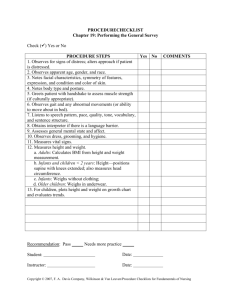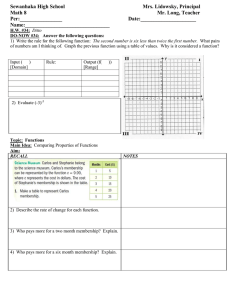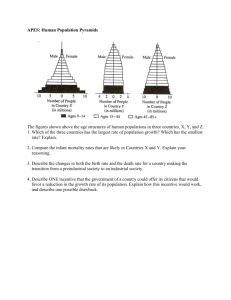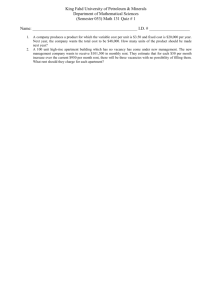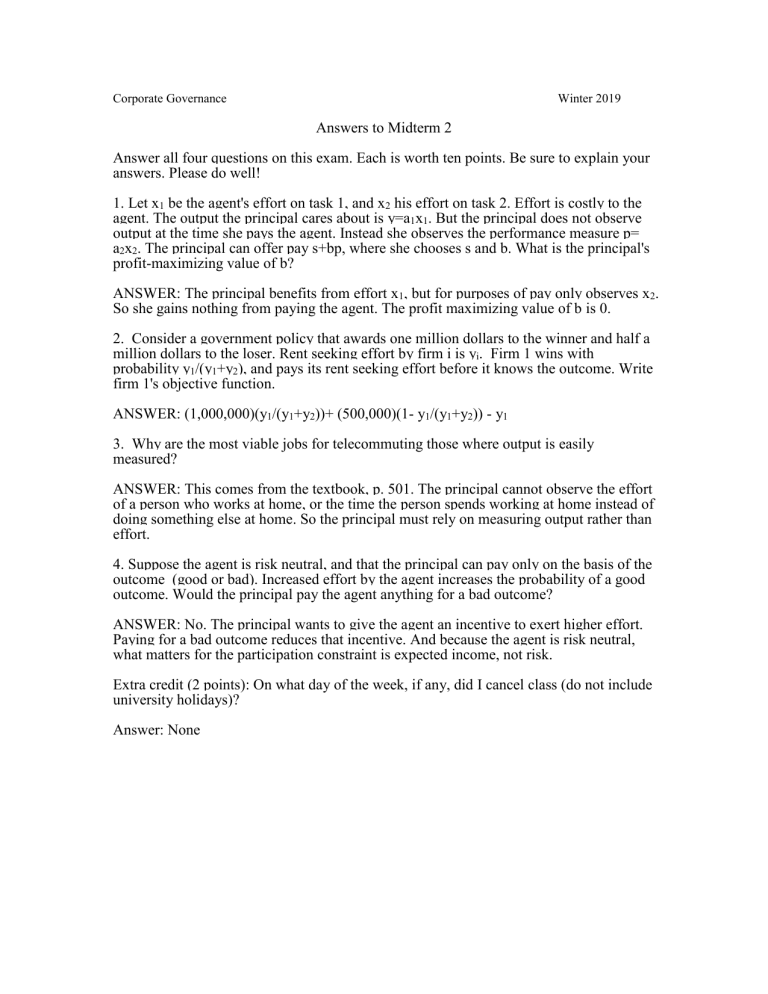
Corporate Governance Winter 2019 Answers to Midterm 2 Answer all four questions on this exam. Each is worth ten points. Be sure to explain your answers. Please do well! 1. Let x1 be the agent's effort on task 1, and x2 his effort on task 2. Effort is costly to the agent. The output the principal cares about is y=a1x1. But the principal does not observe output at the time she pays the agent. Instead she observes the performance measure p= a2x2. The principal can offer pay s+bp, where she chooses s and b. What is the principal's profit-maximizing value of b? ANSWER: The principal benefits from effort x1, but for purposes of pay only observes x2. So she gains nothing from paying the agent. The profit maximizing value of b is 0. 2. Consider a government policy that awards one million dollars to the winner and half a million dollars to the loser. Rent seeking effort by firm i is yi. Firm 1 wins with probability y1/(y1+y2), and pays its rent seeking effort before it knows the outcome. Write firm 1's objective function. ANSWER: (1,000,000)(y1/(y1+y2))+ (500,000)(1- y1/(y1+y2)) - y1 3. Why are the most viable jobs for telecommuting those where output is easily measured? ANSWER: This comes from the textbook, p. 501. The principal cannot observe the effort of a person who works at home, or the time the person spends working at home instead of doing something else at home. So the principal must rely on measuring output rather than effort. 4. Suppose the agent is risk neutral, and that the principal can pay only on the basis of the outcome (good or bad). Increased effort by the agent increases the probability of a good outcome. Would the principal pay the agent anything for a bad outcome? ANSWER: No. The principal wants to give the agent an incentive to exert higher effort. Paying for a bad outcome reduces that incentive. And because the agent is risk neutral, what matters for the participation constraint is expected income, not risk. Extra credit (2 points): On what day of the week, if any, did I cancel class (do not include university holidays)? Answer: None

